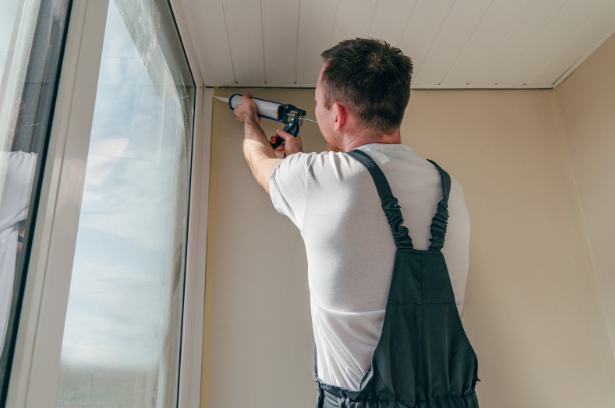
When it comes to upgrading your home, Florida window replacement is one of the most important investments you can make. Whether you’re aiming for better energy efficiency, storm protection, or enhanced curb appeal, Florida window replacement requires special considerations. With the ever-changing building codes, climate-specific materials, and regional pricing factors, it’s crucial to be well-informed before making a decision.
This guide covers everything homeowners in Florida need to know in 2025—from choosing the best replacement windows to understanding local regulations and costs.
Why Window Replacement Is Important in Florida
Florida’s climate is unique. From high humidity and intense UV exposure to tropical storms and hurricanes, your windows need to withstand extreme conditions. Poorly insulated or aging windows can result in:
- Increased energy bills
- Higher risk of storm damage
- Reduced home value
- Poor indoor air quality
Replacing your windows with modern, energy-efficient, and impact-rated models can address all these concerns, making it a smart long-term investment.
Florida Building Codes and Hurricane Impact Requirements
One of the most critical aspects of window replacement in Florida is adhering to local and state building codes, especially regarding hurricane resistance.
Since 2002, the Florida Building Code (FBC) requires windows in hurricane-prone areas—particularly in the High-Velocity Hurricane Zone (HVHZ), which includes Miami-Dade and Broward counties—to meet specific impact resistance standards. These codes are updated regularly, and as of 2025, impact-resistant windows are recommended across most coastal regions, including Tampa window replacement projects.
To comply, look for windows that meet ASTM E1886 and E1996 testing standards or those that carry a Notice of Acceptance (NOA) from Miami-Dade County.
Types of Replacement Windows for Homes in Florida
Choosing the right replacement windows for homes in Florida involves more than aesthetics. Here are some popular types and materials to consider:
Impact-Resistant Windows
These are built with laminated glass and reinforced frames to withstand high winds and flying debris. They’re required in many parts of the state and provide year-round protection.
Energy-Efficient Windows
Energy-efficient models use Low-E glass coatings, argon gas fills, and insulated frames to reduce heat transfer. Look for ENERGY STAR® rated windows tailored for the Southern climate zone.
Vinyl and Aluminum Frames
Vinyl frames are popular for their energy efficiency and low maintenance. Aluminum frames, though less insulative, offer exceptional strength and durability—especially in coastal environments where salt corrosion is a concern.
Best Replacement Windows for Florida Homes
The best replacement windows for Florida combine impact resistance, energy efficiency, and durability. Some of the most trusted brands in 2025 include:
- PGT Custom Windows + Doors – Offers top-rated impact-resistant windows made specifically for Florida conditions.
- Andersen Windows – Known for energy-efficient options with a wide range of customizations.
- Simonton Windows – Delivers strong hurricane-rated vinyl windows at competitive prices.
- CGI Windows – Specializes in high-performance windows built to meet or exceed Florida’s strict codes.
When selecting your brand or product, always verify that it has passed Florida product approval and includes warranty coverage tailored for local weather conditions.
Cost of Window Replacement in Florida (2025 Estimates)
The cost of Florida window replacement varies based on material, size, energy rating, and impact resistance. Here are general 2025 estimates:
- Standard vinyl window replacement: $450 – $750 per window
- Impact-resistant window installation: $800 – $1,400 per window
- Full-home window replacement (10–15 windows): $9,000 – $18,000+
Additional factors that affect cost include custom sizing, tinting, frame upgrades, and labor rates in your city. For example, Tampa window replacement projects tend to cost less than in South Florida, but prices may fluctuate due to contractor demand and materials availability.
Choosing a Window Replacement Contractor
It’s essential to work with a licensed and insured contractor who specializes in replacement windows for homes in Florida. Before hiring, ask:
- Are you familiar with the 2025 Florida Building Code updates?
- Do you offer impact-rated and ENERGY STAR® certified options?
- Can you provide recent references or local projects in Tampa?
- Do you include permitting and inspections in the contract?
Always request a detailed quote and check reviews from third-party sites before committing.
Energy Efficiency and Financial Incentives
Homeowners upgrading to energy-efficient windows may qualify for tax credits, rebates, or utility company incentives. In 2025, the federal Energy Efficient Home Improvement Credit allows for up to 30% back (up to $600) on qualifying window installations. Check with your local utility provider for additional programs in your area.
Conclusion
Replacing your windows in Florida isn’t just about aesthetics—it’s about protection, performance, and long-term value. From ensuring compliance with local building codes to choosing materials suited for Florida’s harsh climate, being informed is essential. Whether you’re located in coastal areas or inland suburbs, selecting the best replacement windows can significantly enhance your home’s comfort, safety, and efficiency. If you’re located in the Tampa Bay area and considering upgrading your windows, there are plenty of reliable options for window replacement Tampa FL—just be sure to choose a contractor with experience in both impact-rated and energy-efficient installations.


